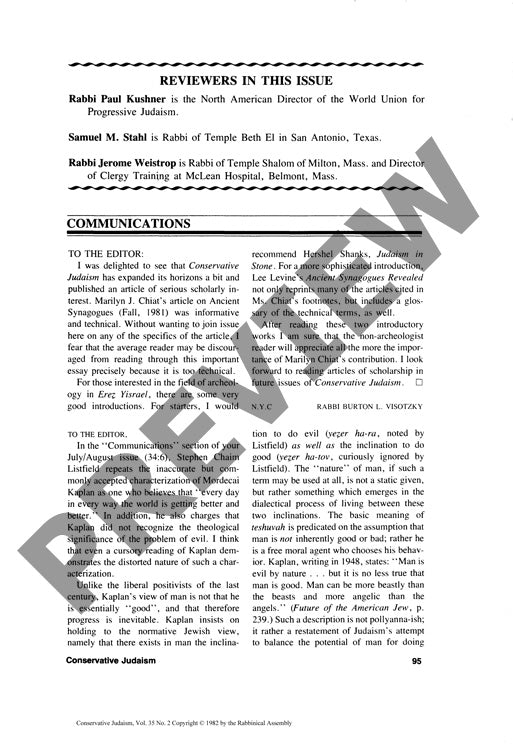Communications
Couldn't load pickup availability
Ancient synagogue archaeology and Mordecai Kaplan's theology emerge as focal points of debate in two scholarly exchanges within Conservative Judaism. The first examines Marilyn J. Chiat's archaeological analysis, acknowledging its technical rigor while raising concerns about its accessibility to non-specialists. To bridge this gap, the author recommends companion texts like Hershel Shanks' "Judaism in Stone" and Lee Levine's "Ancient Synagogues Revealed" as interpretive foundations. The second exchange confronts misreadings of Kaplan's theological framework, particularly challenging assertions that his philosophy embraced naive optimism about human progress while neglecting evil's reality. Through careful examination of Kaplan's writings, the analysis reveals his nuanced integration of traditional Jewish concepts of yetzer ha-ra and yetzer ha-tov, emphasizing human moral agency over inevitable progress. Rather than a simple progressivist, Kaplan emerges as an "if-ist" who recognized humanity's capacity for both good and evil, positioning responsible choice-making as essential for meaningful advancement. These scholarly dialogues illuminate key methodological and interpretive discussions shaping Conservative Jewish discourse.

More Information
-
Physical Description
-
Publication Information
Published 1982
ISBN
-
Publication Credits

